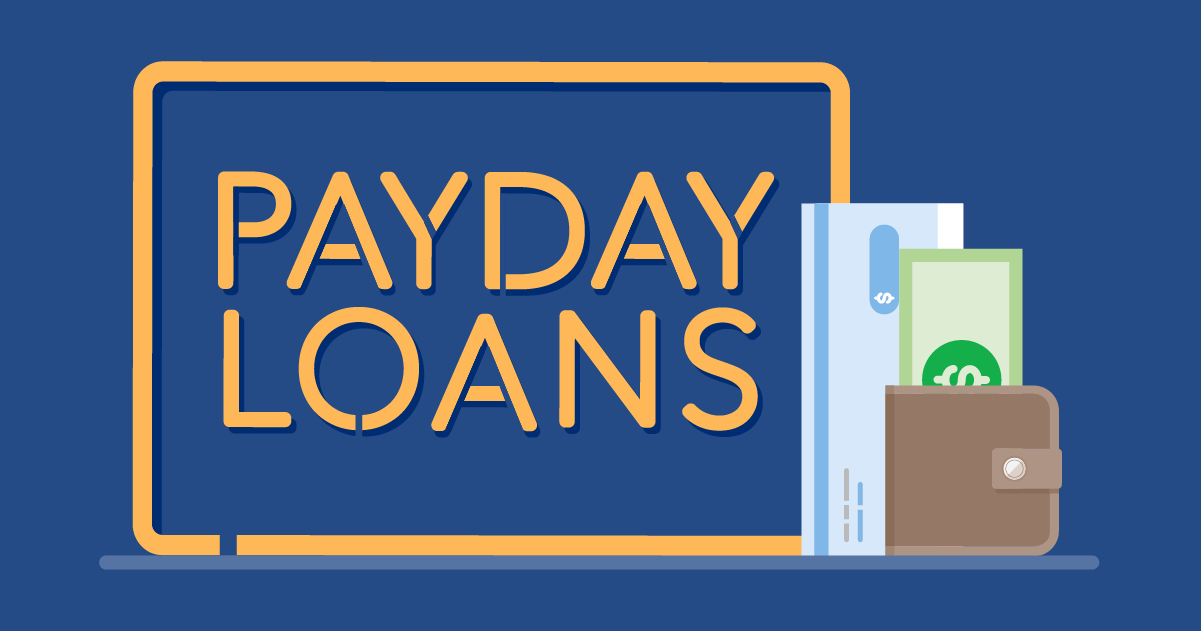A Comprehensive Guide to Home Loans: Solutions and Options Explained
Charting the world of home lendings can be complex. Numerous options exist, each with one-of-a-kind functions and effects for possible property owners. Comprehending the differences between traditional and government-backed financings is essential. The application process involves thorough paperwork and pre-approval steps that several neglect. As debtors commence on their home-buying journey, recognizing just how to handle these obligations properly could suggest the distinction between economic security and difficulty. What methods can empower them on this path?
Comprehending Home Loans: Types and Terminology
Recognizing the various kinds of home finances and their linked terminology is vital for prospective house owners, as it furnishes them with the expertise needed to make informed economic decisions. Mortgage can be broadly categorized into adjustable-rate and fixed-rate home mortgages. Fixed-rate home mortgages preserve a consistent rates of interest over the life of the loan, supplying stability in monthly settlements. Alternatively, variable-rate mortgages feature interest rates that may rise and fall after a first fixed period, possibly causing lower initial repayments yet enhanced future prices.
Additional terms is necessary for clearness. Principal refers to the lending quantity borrowed, while interest is the cost of borrowing that amount. The regard to the lending shows its duration, normally ranging from 15 to three decades. Recognizing these fundamental ideas makes it possible for possible customers to navigate the complex landscape of home financing, ensuring they select the ideal car loan option that straightens with their financial circumstance and long-lasting goals.
Standard Financings vs. Government-Backed Loans
A considerable difference in home financing exists between government-backed finances and standard fundings, each satisfying various debtor needs and situations. Conventional lendings are not insured or ensured by the government and typically need higher credit history and deposits. They are often attracting consumers with stable monetary histories, as they might offer competitive rate of interest and terms.
On the other hand, government-backed car loans, such as FHA, VA, and USDA lendings, are created to aid specific groups of debtors, consisting of first-time homebuyers and experts. These loans generally include reduced deposit needs and even more versatile credit criteria, making them easily accessible to a more comprehensive series of people.
Eventually, the option in between government-backed and traditional fundings rests on the borrower's financial scenario, lasting objectives, and eligibility, making it crucial to meticulously assess both alternatives prior to making a choice.
The Role of Rate Of Interest Rates in Home Financing
Rate of interest rates play a crucial function in home financing, affecting customers' choices in between variable and set price fundings. The choice between these options can substantially influence regular monthly payments, influencing total price. Comprehending how passion prices operate is important for anybody navigating with the home finance procedure.
Taken Care Of vs. Variable Prices
Buyers encounter a crucial decision when choosing between taken care of and variable rates, as this selection significantly influences the cost of funding in time. Fixed-rate home mortgages use security, securing a rate of interest price for the life of the funding, which can be beneficial in an increasing rate of interest environment. This predictability permits property owners to spending plan more successfully. Conversely, variable-rate home loans, or variable-rate mortgages (ARMs), typically start with reduced initial rates that can rise and fall based on market problems. While this might bring about lower preliminary repayments, customers face the danger of boosted rates in the future. Inevitably, the choice in between variable and fixed prices depends on specific financial situations, risk resistance, and assumptions regarding future rate of interest trends.
Effect On Month-to-month Payments
When assessing home financing choices, the effect of rate of interest on month-to-month settlements is a key factor to contemplate. Rates of interest straight affect the general expense of borrowing, affecting exactly how a lot a consumer will certainly pay monthly. A lower rates of interest outcomes in smaller sized regular monthly repayments, making homeownership much more budget friendly. Conversely, greater prices can significantly raise month-to-month commitments, potentially straining a home owner's budget. In addition, the loan term plays an important role; longer terms may spread settlements out but can result in paying even more passion with time - Payday Loans. Recognizing just how passion rates engage with lending amounts and terms is vital for debtors to make enlightened financial decisions and select a home loan that lines up with their long-lasting monetary objectives
Mortgage Brokers vs. Straight Lenders: Which Is Right for You?
When thinking about a home loan, prospective debtors need to understand the distinctive duties and obligations of home mortgage brokers and straight lending institutions. Each alternative offers its own benefits and negative aspects, which can considerably influence the general cost of funding. An educated selection needs mindful analysis of these variables to figure out the best suitable for specific needs.
Duties and roles Defined
Steering the complexities of home funding requires a clear understanding of view it the functions and duties of mortgage brokers and straight loan providers. Installment Loans. Home loan brokers act as middlemans, attaching borrowers with loan providers. They analyze a consumer's financial scenario, curate loan alternatives, and guide clients with the application procedure, usually leveraging several loan provider partnerships to secure favorable terms. Conversely, direct loan providers, such as financial institutions and cooperative credit union, supply lendings straight to borrowers. They manage the entire financing process, from application to financing, with a focus on their own items. Each choice presents unique methods for getting funding, making it crucial for borrowers to review their choices and demands when deciding Home Page between involving a home loan broker or working with a direct lender
Benefits and drawbacks Comparison
Picking between a home loan broker and a straight lender can greatly affect the home funding experience, as each option offers unique advantages and downsides. Home mortgage brokers work as intermediaries, providing access to multiple loan providers and possibly better rates, while streamlining the funding process. They may charge costs and depend on commission structures that can influence their referrals. On the various other hand, direct lenders simplify the procedure by using in-house car loans, which can lead to faster authorizations and fewer complications. On the other hand, they might have a minimal option of items and less adaptability regarding rates. Inevitably, the decision pivots on private preferences, financial scenarios, and the desired level of assistance throughout the home mortgage journey.
Cost Effects Assessed
While reviewing the cost ramifications of mortgage brokers versus direct lending institutions, prospective home owners have to take into consideration different aspects that can greatly affect their general expenditures. Home mortgage brokers typically bill fees for their services, which can differ significantly, influencing the overall financing price. They commonly have accessibility to a wider variety of loan products and affordable rates, potentially saving borrowers cash in the lengthy run. Conversely, straight lending institutions may provide a much more uncomplicated procedure with perhaps reduced upfront costs, but their finance options may be restricted. It is necessary for property owners to contrast rates of interest, fees, and terms from both lenders and brokers, ensuring they make an informed choice that lines up with their monetary goals and demands.
The Home Car Loan Application Refine: What to Expect
The home mortgage application process can frequently feel daunting for several applicants. It commonly starts with collecting needed documents, including evidence of revenue, credit rating, and personal identification. Lenders utilize this info to assess the candidate's economic stability and determine car loan eligibility.
Next off, applicants submit an official application, which may involve completing on the internet forms or providing details face to face. During try here this phase, lending institutions evaluate numerous elements, such as debt-to-income proportion and credit report, to choose funding terms.
As soon as pre-approved, the loan provider will certainly carry out a thorough assessment of the home to establish its value straightens with the lending amount. This stage may additionally consist of added background checks.
After last approvals and conditions are fulfilled, the financing is processed, leading to the closing phase. Understanding each action empowers applicants, making the trip smoother and extra workable as they move toward homeownership.
Tips for Handling Your Mortgage Sensibly
Successfully navigating the home financing application process is simply the beginning of an accountable financial trip. Managing a mortgage needs focus to a number of key practices. First, customers should develop a clear budget that fits month-to-month home mortgage payments, real estate tax, and insurance. On a regular basis evaluating this budget aids protect against overspending and warranties prompt settlements.

Additionally, making added settlements when feasible can substantially reduce the lending principal and complete passion paid with time. Consumers need to additionally keep open lines of communication with their loan provider, especially in times of financial difficulty - Payday Loans. This can lead to possible services such as car loan modifications or re-financing choices
Lastly, it is a good idea to monitor credit history frequently. A good credit rating can offer opportunities for better lending terms in the future. By adhering to these pointers, home owners can navigate their loan duties properly, assuring long-term monetary health and wellness and security.
Often Asked Questions
What Are Closing Prices and Exactly How Are They Calculated?
Closing prices encompass costs related to wrapping up a mortgage, consisting of assessment, title insurance policy, and financing origination costs. These expenses generally vary from 2% to 5% of the finance quantity, differing based on location and lender.

Can I Receive a Home Financing With Bad Credit History?
Yes, people with bad credit rating can get approved for a home mortgage, though choices may be limited. Lenders typically require higher deposits or rate of interest, and exploring government-backed loans may improve possibilities of authorization.
What Is Home loan Insurance policy and When Is It Needed?
When a consumer makes a down payment of less than 20%, home loan insurance policy protects lenders against default and is commonly required. It ensures that lending institutions recoup losses if the customer fails to pay back the lending.
Just How Does Refinancing Job and When Should I Consider It?
Refinancing involves replacing a present mortgage with a new one, generally to secure a reduced rate of interest or adjustment loan terms. Home owners need to think about refinancing when rate of interest go down substantially or their monetary circumstance improves.
What Occurs if I Miss a Home Mortgage Payment?
If a mortgage settlement is missed out on, the lending institution usually examines late charges, reports the delinquency to credit report bureaus, and may initiate repossession procedures if payments proceed to be neglected, at some point jeopardizing the home owner's residential or commercial property.
Fixed-rate home loans maintain a regular interest price over the life of the finance, offering security in month-to-month payments. A significant distinction in home financing exists in between traditional car loans and government-backed finances, each providing to different consumer needs and scenarios. In comparison, government-backed car loans, such as FHA, VA, and USDA lendings, are created to help particular teams of customers, including newbie homebuyers and experts. Rate of interest rates play a vital duty in home financing, affecting customers' choices in between fixed and variable price car loans. Fixed-rate mortgages offer stability, securing in an interest rate for the life of the financing, which can be useful in an increasing passion rate environment.